Do You have chronic pain?
Do you suffer from a mood disorder?
It's time for relief! Ketamine is the treatment for you when you thought your treatment options were exhausted!
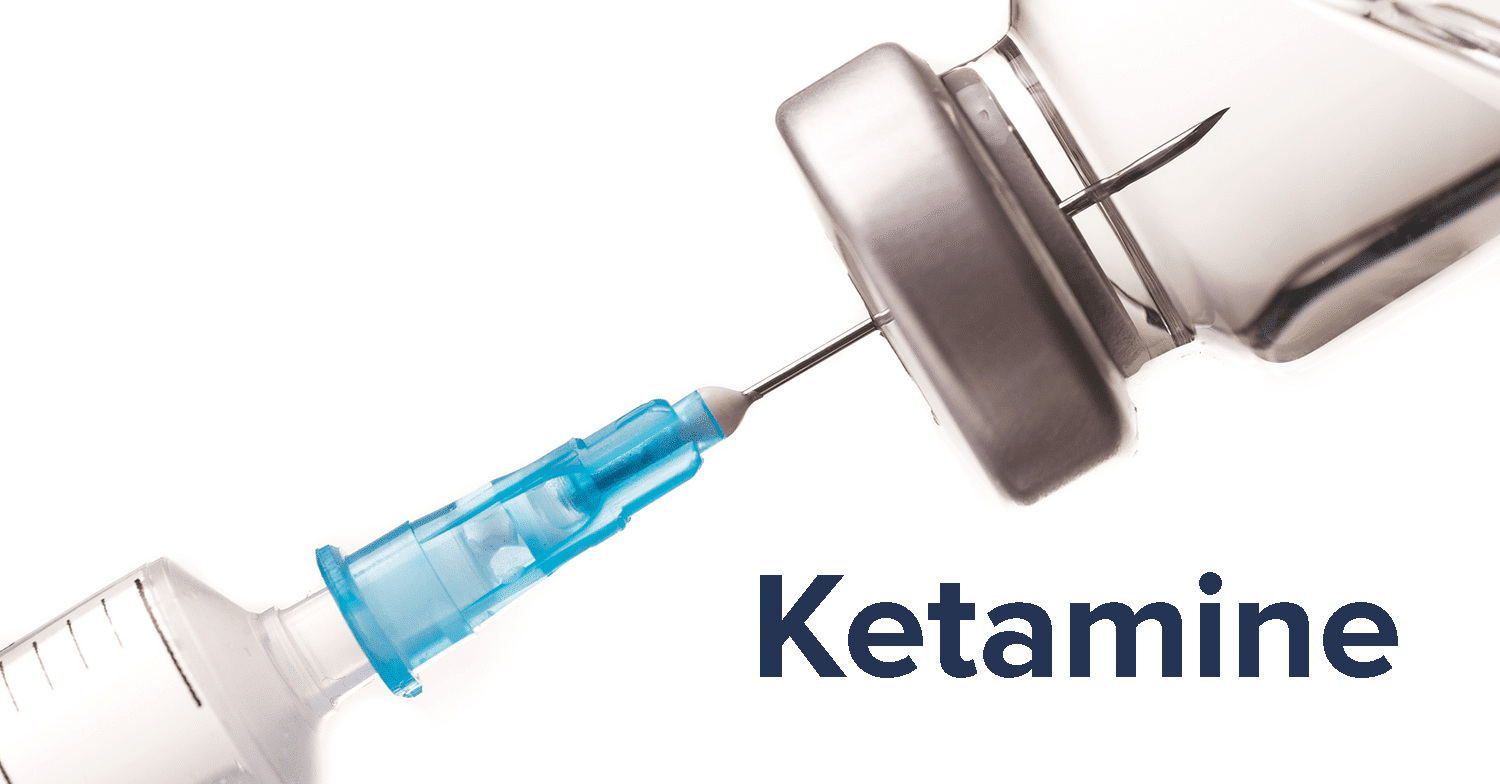
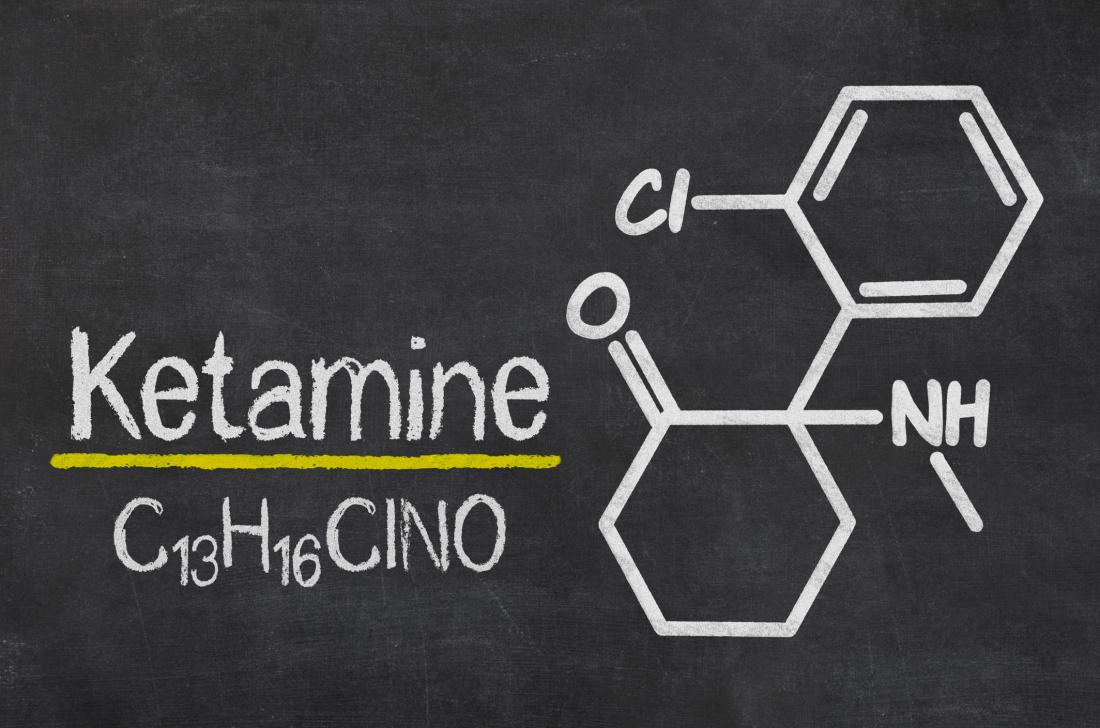
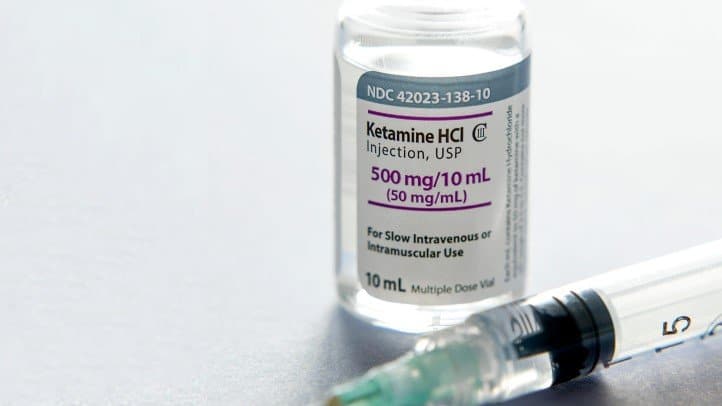
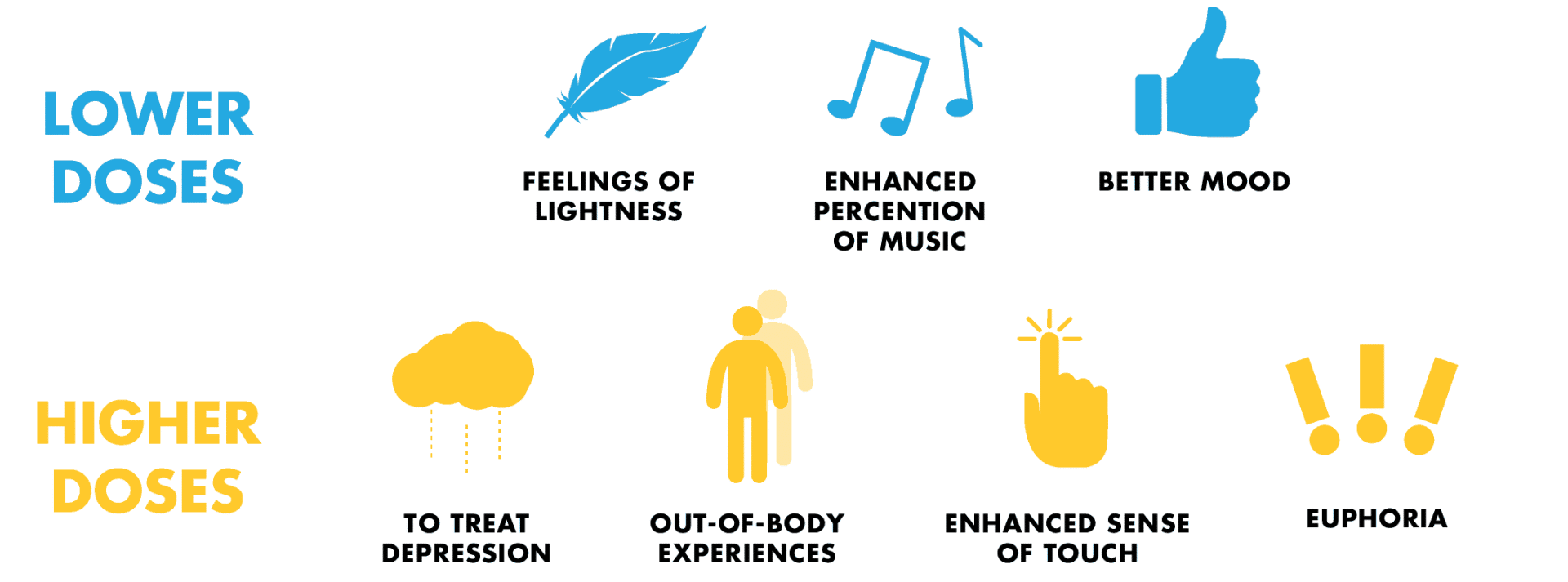
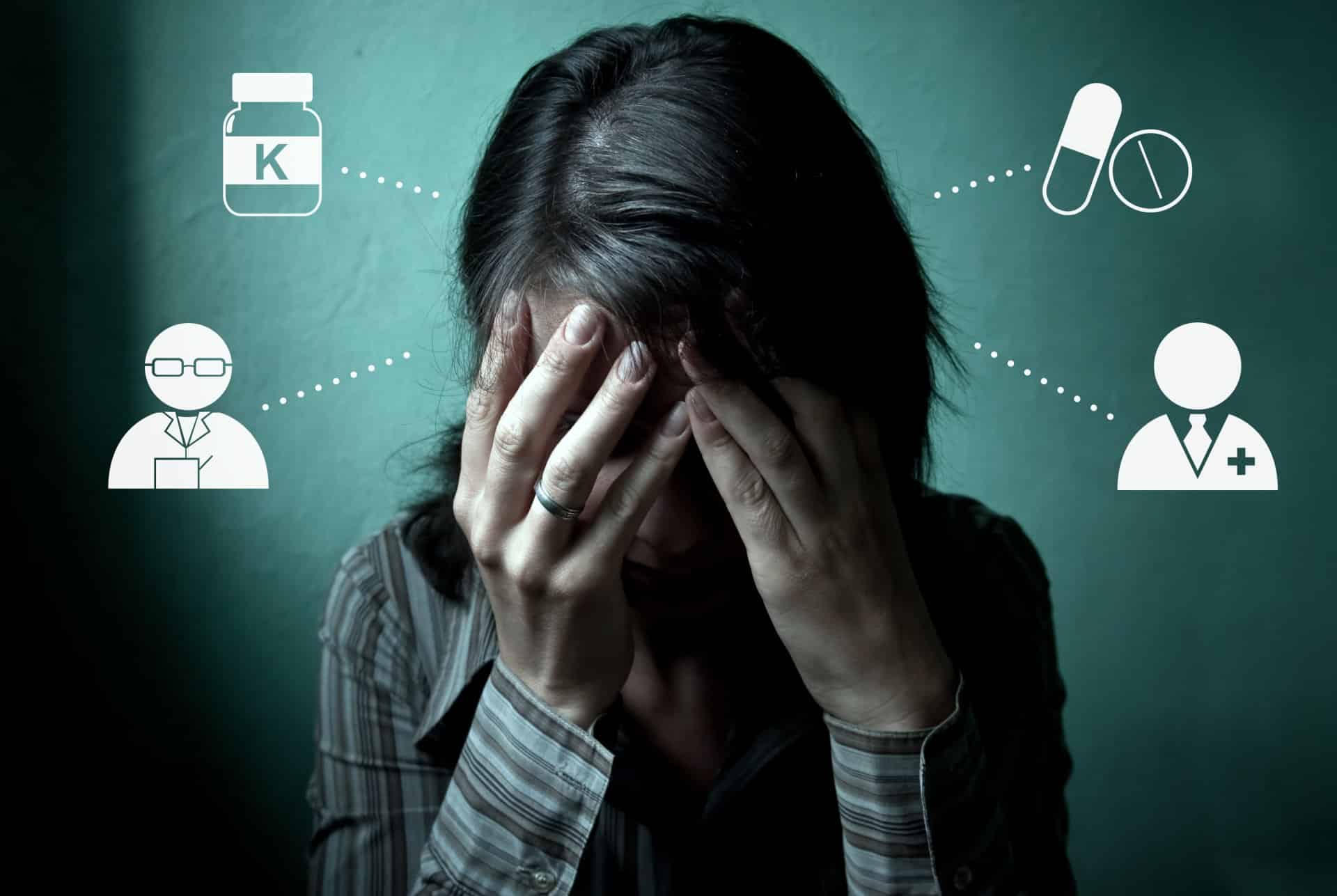
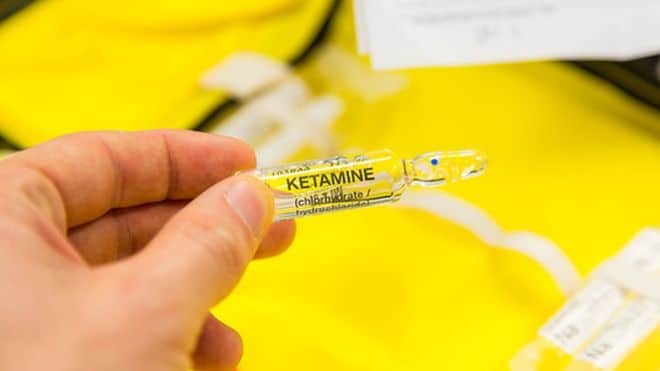
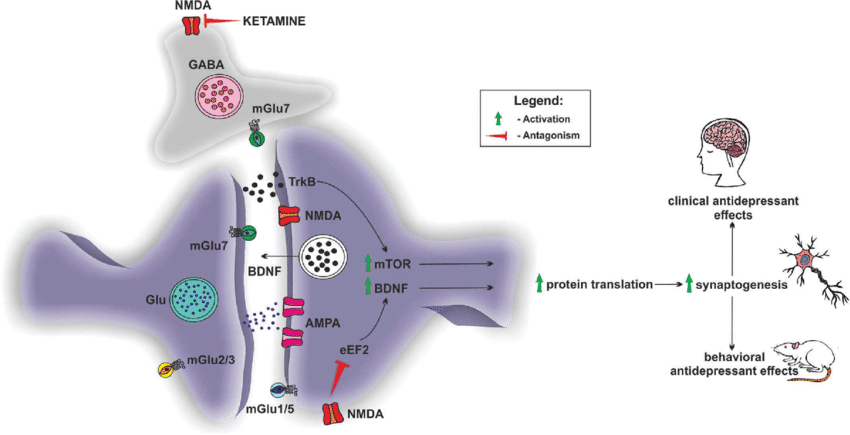
Ketamine
Introduction
Ketamine was first synthesized in 1962 by Calvin Stevens at Parke-Davis Co (now Pfizer) as an alternative anesthetic to phencyclidine. It was first used on humans in 1965 by Corssen and Domino and was introduced into clinical practice by 1970. Ketamine is frequently described as a “unique drug” because it shows hypnotic (sleep-producing), analgesic (pain-relieving) and amnesic (short-term memory loss) effects; no other drug used in clinical practice produces these three important effects at the same time.
Severe depression is a disorder that can most often be improved with present day oral antidepressants. These drugs generally work by increasing the amount of serotonin or norepinepherine in the brain. While effective in most patients, these medications can take weeks to begin working. In addition, your physician may have to try several different antidepressants before finding the right medication or combination that will help. Patients with severe depression, and/or those having thoughts of self harm, immediate relief of their depression could be life saving. Until now, electro convulsive therapy (ECT) has been the only proven method of treating severe and life threatening depression with minimal delay.
For over a decade scientists have been studying the role of another neurotransmitter, glutamate, and its role in understanding depression. It has now been proven that the administration of subanesthetic doses of ketamine, a glutamate (NMDA) receptor antagonist, results in a dramatic and rapid improvement in severe depression.
It is often used for:
Mood Disorders
Chronic Pain
Migraine
Bi-Polar Disorder
PTSD
Anti-Inflammation
Anxiety
Depression
*Ketamine is not a cure, however, it may provide patients with an extended period of relief from treatment resistant symptoms. Contact us to learn how Ketamine offers hope to people suffering from some of the symptoms listed above.
Types of Mood Disorders
Depression and anxiety are considered to be mood disorders that can severely disrupt your life. Potential candidates for Ketamine infusion therapy may have previous diagnoses of the following:
- Treatment Resistant Depression
- Major Depressive Disorders
- Post-partum Depression
- Bi-polar Depression
- Severe Anxiety
Chronic Pain
When you’re in pain, nothing else matters. If you have chronic pain, your life is completely interrupted. It doesn’t take long for your quality of life to suffer due to pain. At LIMA Lubbock, we want to help you get your full life back. That’s why we’ve developed protocols for infusion therapy that will help alleviate your pain and get you back on your feet again.
- Chronic migraines
- Fibromyalgia
- Migraines
- Diabetic Neuropathy
- Chronic Inflammation
The Procedure
The infusions take place in private rooms, in out-patient office setting. Patients sit in a comfortable reclining chair. The infusion takes about one hour depending on patients needs and treatment. Patients generally stay another 15-30 minutes before leaving, but may stay until they feel comfortable enough to leave. Patients are encouraged to be accompanied for at least the first visit. During the infusion patients are also encouraged to listen to music they enjoy from their own playlists. Wi-Fi is available. During the infusion you will experience some dissociation, which are not hallucinations, but rather altered reality. Most patients find it pleasurable and non-threatening. If it does make you uncomfortable the infusion can be stopped, or medication given which will end the thoughts within a minute. It is rare that this is necessary. By the time you leave the office your mentation will be close to normal. Some patients are able to return to work, go to airports, and carry on as an otherwise normal day. Other patients prefer to go home and take a short nap. The only restriction after leaving the office is no driving until the next day. You must have a designated driver when leaving the office after an infusion. Your improvement in mood will not be immediate. The earliest that you might expect to feel better is several hours after leaving the office.
Ketamine is Often Used for and a Great Treatment Option for the Following:
Underlying Factors May Also Contribute to Current & Future Health Conditions:
Mood Disorders
Chronic Pain
Migraine
Bi Bolar
PTSD
Anti-Inflammation
Anxiety
Depression
*We are one of the only offices registered with American Society of Ketamine Physicians in The Panhandle. (nearest is Dallas area)
Ketamine was first, and still is, an important human general anesthetic agent. It has been used in hospitals for the past five decades and has a proven record of safety. More recently it is being used to treat neuropathic pain and the symptoms of PTSD. The small doses and methods of administration used to treat psychiatric patients differ greatly from those used in hospitals.
- Ketamine is on the World Health Organizations’s list of “Top 10 Essential Drugs”
Do I need a referral from a psychiatrist?
No, while referrals from any mental health care provider are welcome and encouraged, an initial phone interview with one of our doctors can determine if you are a good candidate for ketamine therapy.
Yes, ketamine infusions for depression are outpatient procedures requiring no hospital admission. The infusions take place in private rooms. Patients sit in a comfortable reclining chair.
It is not yet approved by the FDA. Over the past two decades dozens of studies in prestigious medical centers and The National Institute of Mental Health have proven ketamine’s safety and efficacy in treating major depressive disorders, anxiety, obsessive compulsive disorders and suicide ideation. Yet, without very large controlled studies generally required by the FDA to get approval for any psychiatric drug, approval has been delayed.
Since ketamine is a generic drug, no pharmaceutical company will spent the hundreds of millions of dollars required for such a study. Efforts are being made to create a national registry of the outcomes of the thousands of patients treated by ketamine providers across the country to date. We are the ONLY provider in the West Texas Panhandle thats registered ! This data will be used to expedite FDA approval. In the meantime, ketamine is being used “off label”, as is true with many other medications prescribed by physicians.
FAQ's About Ketamine
There are lots of questions when it comes to Ketamine Infusions!
No, mild to moderate depression is successfully treated by mental health professionals with drugs and psychotherapy. The treatment of severe depression is more difficult and requires a higher level of care, such as ECT, TMS, and now ketamine therapy. Ketamine infusion therapy is reserved for those patients with severe depression that is considered otherwise treatment resistant.
The patients we see are all considered treatment resistant. That is, they have not responded to available antidepressant medications and in many cases have not responded to ECT or TMS. We cannot predict who will respond to ketamine, but statistically 2 out of 3 patients do show a dramatic improvement in their mood and 3 out of 4 will cease to have suicide ideation. We will know within two treatments if ketamine infusions will help you.
If you have a favorable response to the first two infusions, a total of six is recommended within a twelve day period. That will maximize the ketamine effect on new dendrite and synapse growth. Thereafter, patients are placed a maintenance program where they return when they feel it necessary for a single infusion booster. During the maintenance period, the duration of relief following the initial infusions and the first booster, and between subsequent single booster infusions varies between patients. The average duration of relief between booster infusions is 3 to 4 weeks. There is no way to predict what your needs will be.
No, right now ketamine infusion therapy is, perhaps, the most exciting and successful new treatment for severe depression. But, there are large pharmaceutical companies developing ketamine like drugs for more convenient nasal and oral administration. It may be a few years, but those drugs will become available. In the meantime, ketamine has been proven effective in most cases, and is available to you or your loved ones. Patients with debilitating severe depression with constant thoughts of self harm can not afford to wait.
About an hour, with an additional half hour before discharge.
No. The dose of ketamine you will receive does not cause any loss of consciousness.
Most patients experience a mild dissociation or inner reflective experience that is generally well tolerated. If you find it unpleasant we can treat it. Within 15 minutes of ending the infusion your thinking will be clear. There are no delayed “flashbacks.”
Yes. The benzodiazepines, such as Klonopin, Xanax, and Ativan do interfere with ketamine if used daily and at higher doses. Lamictal (lamotrigine) in doses above 100mg/day also can block ketamine efficacy.
No, other antidepressant medications do not interfere with ketamine’s mechanism of action.
Almost none. Uncontrolled high blood pressure or heart failure need to be corrected.
No, ketamine has been proven safe in humans over five decades in and out of hospitals and battle fields for surgical anesthesia and trauma management. Those patients experience longer exposures and at much higher doses than those used to treat severe depression. Although it has been abused recreationally in high doses as a club drug, there is no evidence that ketamine is addictive.
In general, five to seven days are required to get you on the schedule. Since we will need documentation prior to treatment, either from our office or your provider it could delay when you are put on the schedule.
"Dr. Stephen Dalton, DO."

At LIMA Lubbock we uses a series of questioners and testing along with state of the art technology to identify the the Source not the Symptom. Many times their are underlining issues that are contributing to our health problems. A customized plan is compiled directly from your test results, exam and questionnaires. Ketamine can improve many health problems and lead to a better quality of life!
![LIMA final[2553]](https://www.limalubbock.com/wp-content/uploads/2023/07/LIMA_final2553.png)
